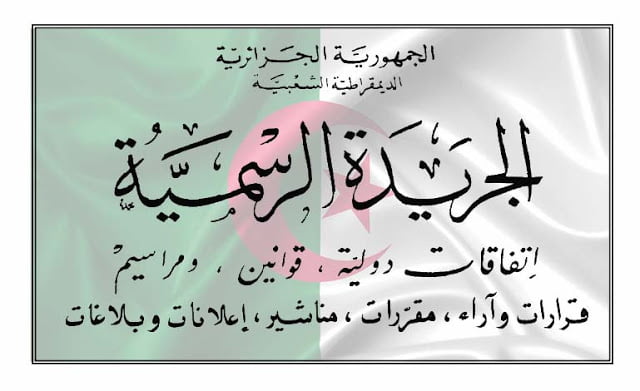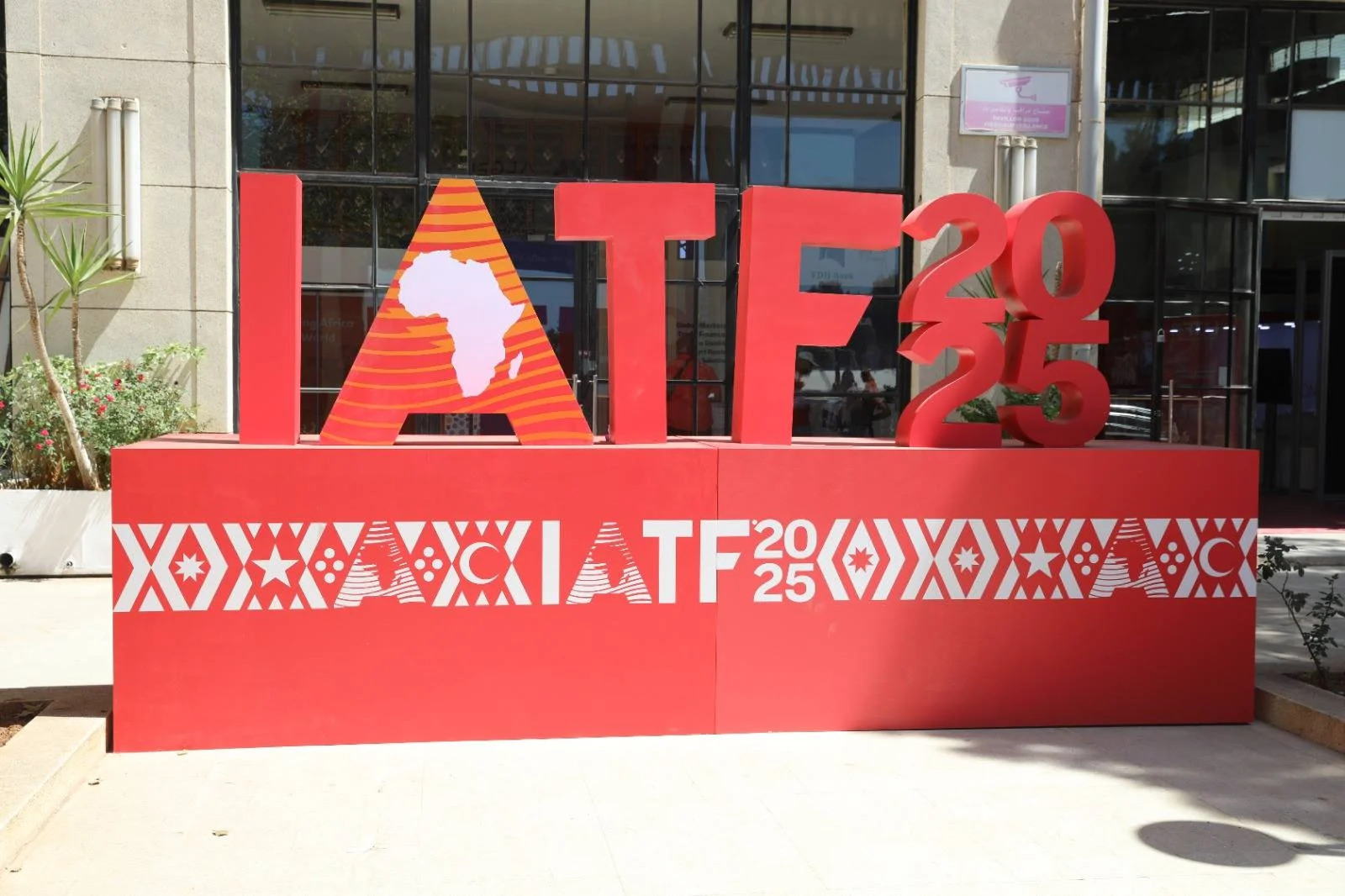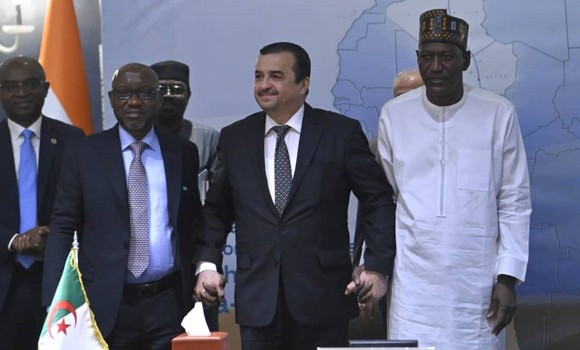"Algeria is fully committed to this project and will continue to work with Nigeria and Niger to realize this great African dream and found a new energy future for Africa, a future in which our continent will have a major role in global energy security and the development of its peoples", said the Minister of State in his address to the 4th Ministerial Meeting of the TSGP Steering Committee, attended by the Energy and Oil Ministers of Algeria, Niger and Nigeria, at the Abdelatif-Rahal International Conference Center (CIC).
The meeting, held behind closed doors, was attended by the Minister of State for Petroleum Resources of the Federal Republic of Nigeria, Ekperikpe Ekpo, the Minister of Petroleum of the Republic of Niger, Sahabi Oumarou, and the Minister of Hydraulics, Sanitation and the Environment of the Republic of Niger, Maizama Abdoulaye.
In this respect, Mr Arkab emphasized that the project, stretching over 4,000 km, will link Africa's vast gas reserves to European and world markets.
See also: Trans-Saharan gas pipeline: Algeria, Nigeria and Niger sign agreements to accelerate project completion.
"This project is not simply infrastructure, but a shared vision for a prosperous future reflecting our common ambition to build a strategic bridge between Africa and the world," he said.
This future energy facility will give the continent, the Minister added, "a central place on the global energy market, consolidate regional and international cooperation, and contribute to socio-economic development and African complementarity on the global energy market, particularly in the wake of energy developments in our region and around the world, as well as the growing demand for gas supplies".
Addressing the dimensions of the gas pipeline project, the Minister explained that they consisted of strengthening regional and international energy security, through stable and reliable gas supplies, the realization of socio-economic development, through the creation of large-scale investment opportunities, as well as the development of energy industries, in addition to increased financial revenues.
Among the dimensions of this strategic energy project, he added, are support for African complementarity, through interconnection between the northern and southern Sahara, stimulation of bilateral trade between the countries of the continent, and reinforcement of regional stability, through the creation of jobs and the realization of development, which will help to reduce socio-economic tensions.
Mr Arkab also stressed that the project's success hinges on "the political will of the three countries and our technical and financial cooperation, as well as our ability to attract strategic investment", noting that Algeria, Niger, and Nigeria "are facing a historic opportunity to transform this project into a real lever for Africa's development".
Achieving this objective requires "accelerating the pace of implementation by removing technical and financial obstacles, strengthening coordination between our countries and ensuring an attractive investment environment through partnerships with international financial institutions and leading companies in the energy sector, in addition to reinforcing security and stability around the gas pipeline circuit to ensure smooth execution of the project within a sustainable framework", he stressed.
He added: "Today more than ever, we can count on our national hydrocarbon companies, namely Sonatrach, NNPC (Nigeria) and Sonidep (Niger), which are now considered to be among the leading players on the global energy scene, aspiring to strengthen their position by renewing and increasing reserves, improving their operational performance, reducing their carbon footprint, and investing in human capital".
He pointed out, in this context, that these companies today have the skills and resources needed to carry out the project, which gives them a significant advantage, citing, by way of example, Sonatrach, which has a hydrocarbon transport network extending over 22,000 km and has subsidiaries in charge of pipeline maintenance and transport work.























